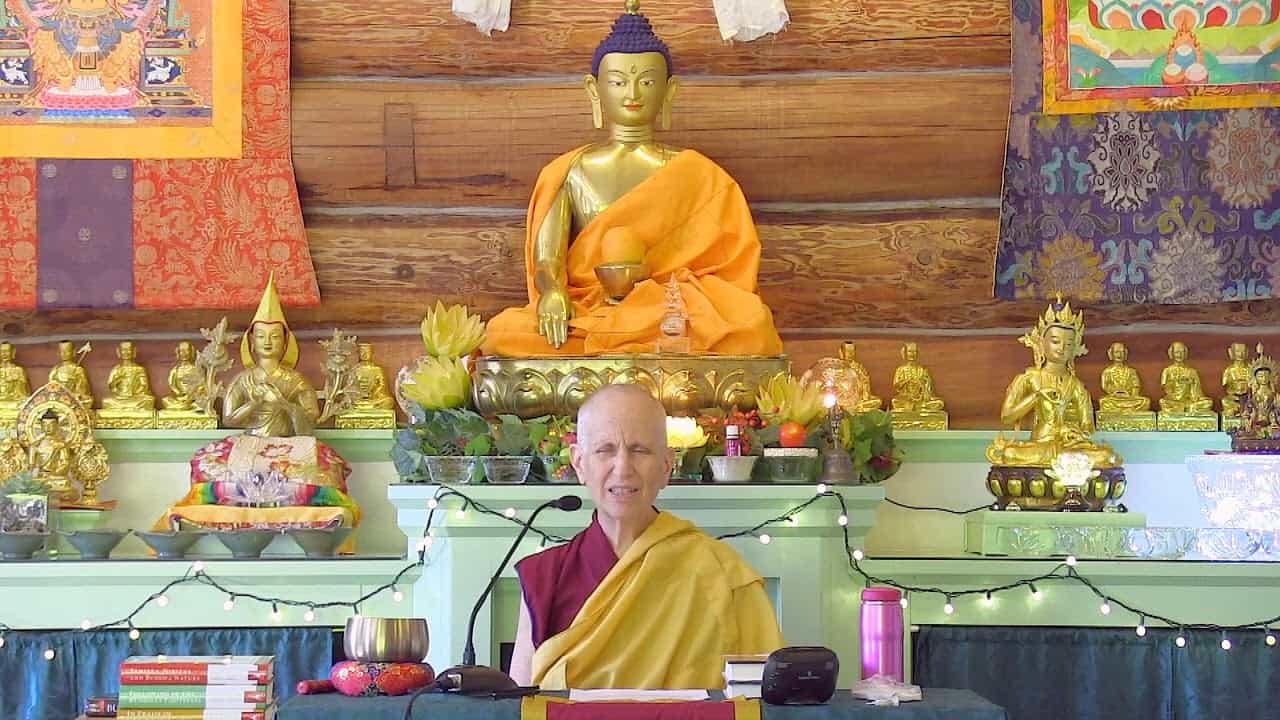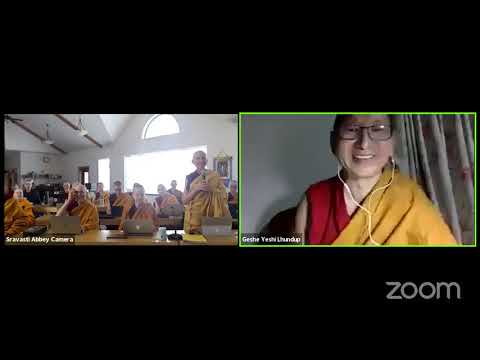Definite and indefinite karma
64 The Foundation of Buddhist Practice
Part of an ongoing series of teachings (retreat and Friday) based on the book The Foundation of Buddhist Practice, second volume in “The Library of Wisdom and Compassion” series by His Holiness the Dalai Lama and Venerable Thubten Chodron.
- Problems due to our habituation with negative emotions
- Importance of changing our attitude towards what we experience
- Actions affecting the virtues of those following bodhisattva path
- Being aware of factors affecting the ripening of karma
- Feeling aspect of our experiences is related to our actions
- Working with the frequently arising negative emotions
- Practical considerations to reflect on karma
- Definite and indefinite karma, result probable or improbable
- Four possibilities of done and accumulated
- Ten examples of actions done but not accumulated
- Six characteristics of an action done and accumulated
The Foundation of Buddhist Practice 64: Definite and Indefinite Karma (download)
Contemplation points
- Consider the example Venerable Chodron made of the President: his unhappiness, seeing others as the enemy, and being unable to enjoy even the worldly happiness and success he has achieved. Now look at your own life. Do you find this true for your own life as well – being blocked from happiness and virtue by your own afflicted mind? Make some examples? What negative karma are you creating in the process of having this kind of mind? What antidotes can you apply?
- What actions are particularly damaging to the virtue of someone on the bodhisattva path? Consider each and what it is that makes each of these so harmful.
- How does conscientiousness help us overcome the four results of karma? Make some examples of this from your own life.
- What is the difference between blame and accepting responsibility for a situation? What does accepting responsibility allow us to do that blame does not?
- Think of some of the good circumstances you have in your life, for example, health, sufficient wealth, family, education, friends, hobbies, satisfying work, opportunities to hear Dharma teachings, connection with the monastic sangha, and so on. Think of the types of actions you must have engaged in during previous lives to create the causes for these excellent circumstances. Rejoice at the virtue you created and make a strong determination to engage in virtues activities in this life to make preparation for good future lives where you will be able to continue your Dharma studies and practices.
- Look at five actions over the course of the next week and describe them in terms of the four parts of a full action. Look at those same actions in terms of what makes an action heavy or light. Finally, look at those actions in terms of which of the four possibilities, between done and accumulated, that each falls into. How does it affect your mind to pay close attention to your actions in this way?
Venerable Thubten Chodron
Venerable Chodron emphasizes the practical application of Buddha’s teachings in our daily lives and is especially skilled at explaining them in ways easily understood and practiced by Westerners. She is well known for her warm, humorous, and lucid teachings. She was ordained as a Buddhist nun in 1977 by Kyabje Ling Rinpoche in Dharamsala, India, and in 1986 she received bhikshuni (full) ordination in Taiwan. Read her full bio.


